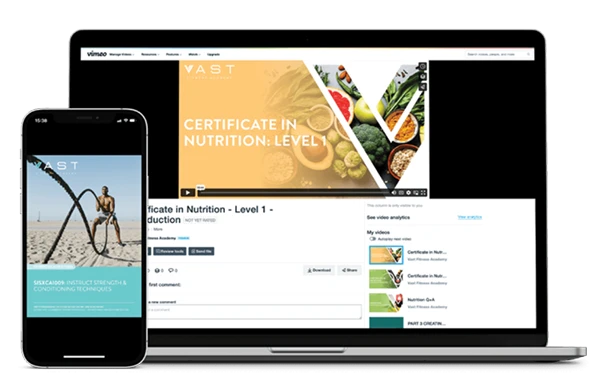Study with leaders in online education.
Fast track your career as a Personal Trainer or Nutritionist with our fully accredited, Nationally Recognised courses.


Our Courses.
We are constantly improving and expanding our course offerings to ensure our Graduates are industry-ready. In addition to Nationally Recognised fitness courses, Vast offers Australia’s only 11046NAT – Certificate IV in Nutrition.
You can now qualify as a Personal Trainer or Nationally Recognised Nutritionist without attending university.
- 5 Courses
- Multiple pathways
Our fitness course offerings provide a range of career outcomes, from working at an F45 all the way through to running your own personal training business.
- 3 Courses
- Multiple pathways
Begin your career as a qualified and insured Nutritionist, or simply upskill for your personal training business with our range of nutrition course options.
- 7 courses
- Fitness & Nutrition
In the ever evolving industries of fitness and nutrition, our short courses provide up-to-date and continual education to keep you ahead of the pack.
Our Mission.
It's simple, we want to improve the health of Australians through education.
Helping people reach their goals with the very best fitness and nutrition qualifications allows us to reach more people, making a significant impact on the health of Australians nationwide.
Why choose Vast?
At Vast, we pride ourselves on providing an unrivalled level of support to every student. This is made possible by having a team of the industry’s best, who are passionate about educating the next generation of health and fitness professionals.
This ensures the needs of our students are always at the forefront of what we do, motivating us to provide the most up-to-date content delivered through easy-to-use platforms.
Student Testimonials.
The student experience drives every decision we make at Vast Fitness Academy.
With hundreds of 5-star reviews from past and present students, we know we are on track.







